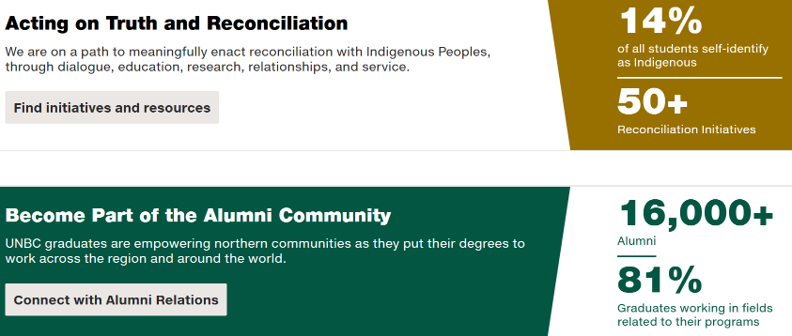Module 3: Creation and Curation
Post-Secondary Institution Indigenous Supports
Elders-in-Residence
Many public post-secondary institutions (PSIs) have an Elder-in-Residence or Elders Council. Generally the Elders are from the local Nations on whose traditional territories the institution is situated.
Elders-in-Residence do all of the following:
- Support the use of Indigenous Knowledges and language
- Support all learners by offering Traditional Knowledge and spiritual guidance
- Assist faculty, staff, and administration to build capacity in areas of Cultural Knowledge and understanding
Please refer to your institution’s process for engaging with and connecting with an Elder.
Learner notes
Indigenous support staff
Post-secondary institutions in British Columbia have implemented initiatives to support Indigenous learners.
- 26 public institutions employ at least one Indigenous education coordinator who provides support services to Indigenous learners.
- 25 institutions have Indigenous advisory councils, which provide a link to Indigenous communities.
Learner notes
Indigenous Houses of Learning/Gathering Places
Many post-secondary institutions have an Indigenized space that serves as a “home away from home” for Indigenous students and is the academic, social, spiritual, and cultural hub for the Indigenous student community. It is a space where they can connect with an Elder, hang out between classes, and enjoy cultural events based on acknowledging the teachings of the territories the campus is located on.
Learner notes
Post-secondary websites on Indigenous topics
Many post-secondary institutions have direct links to how to connect with an Elder built in to their main website, offer workshops, and have examples of traditional land acknowledgements.
If you are an instructor and are unsure if your institution has Indigenous supports for faculty, we suggest asking your Student Services Department or your department head.
Example from UNBC’s homepage

Indigenous Speaker Series
Some post-secondary institutions have an Indigenous Speaker Series that you and your students can attend as part of your reconciliation paths, as a class assignments, etc.
For example UBC Indigenous business speaker Series.
Learner notes
Indigenous guest speakers
You can invite guest speakers share their cultural perspectives on topics in your curriculum or about their cultures in general.
Guest speakers could be:
- Students presenting on their cultures
- Other faculty
- Chiefs and Council members
- Clan Mothers
- Alumni
- Elders
- Indigenous scholars
Learner notes
Things you can do
- Identify and access academic and community educational resources that would enable knowledge building around Indigenous Peoples and their perspectives and culture.
- Develop an academic and community contact list of individuals who you can begin relationships with.
- Take an active role (and encourage others to do so as well) to independently locate educational resources that are accessed through reputable and authentic Indigenous community sources.
- Identify on-campus supports to assist you in assessing the quality of resources.
- Evaluate information gathered and reach out to appropriate contacts who may offer guidance and support.
Attributions
- “UNBC home page” image is a screenshot from UNBC’s website that is used under fair dealing to illustrate a university website that is directing users to initiatives and resources related to truth and reconciliation.

